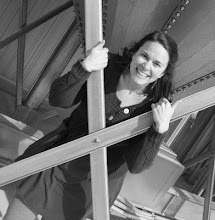Good Things, Small Things
This month marks my 3-month anniversary on the Ranch. Despite many challenges and failures, there have been some good things too and I want to share them with you in celebration of my survival of these hard and crucial first months.
*Speaking enough Spanish to teach my students, barter with street vendors, and tell crazy men in Tegus to stop bothering me.
*Killing scorpions without remorse.
*Playing my first game of soccer and scoring my first goal! (All in the same game--Colegio teachers vs. Escuela teachers during recess yesterday. The kids thought it was the greatest thing--their teachers playing "futbol"--and all gathered around to watch, cheer, and offer strategical advice.) My team won, by the way--4 to 0.
*Being able to disregard chunks of milk in my coffee (we use powered milk and it gets sort of clumpy at times).
*Asking for things I need and sharing what I do have without hesitation.
*Earning respect and trust from my kids. They are beginning to tell me their stories.
*Swimming in the Caribbean and in the Pacific ocean, listening to Bob Marley in a beachside fish joint, drinking mango beer at a brewery in the middle of a coffee plantation.
*Making friends here who support me, put up with me, and generally seem to like me.
*All of my 6th graders passing their Bimester 1 classes--one of my students had the highest Spanish grade in her entire class! 97%!
*Seeing the love of my friends and family back home through their prayers, emails, letters, and amazing care packages.
*Spending the night in a stranger´s home because the only hotel in town was full.
*Growing fond of cold showers, lately wishing they could be colder.
These are some of my small victories. No matter how small, I am still proud of them. I guess that is another lesson learned for me--to be able to rejoice in these small, good things.

